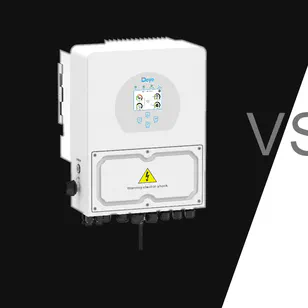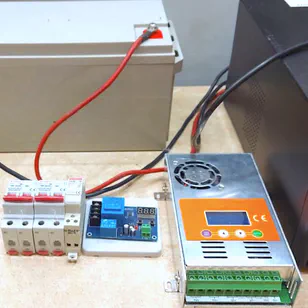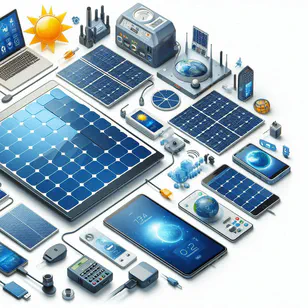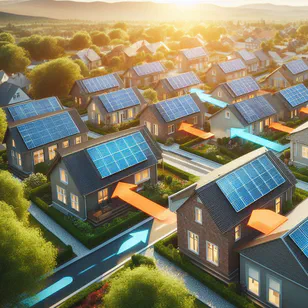Introduction
As solar energy continues to grow in popularity, more people are asking whether they can save money by using second-hand solar panels. The short answer is yes—you can, and sometimes it’s even a smart choice. However, like any major purchase, there are important details to consider before you buy used solar panels.
Why Are Second-Hand Solar Panels Available?
The market for used solar panels is growing for several reasons:
- Upgrades and Modernization: Many homeowners and businesses upgrade their solar systems to take advantage of newer, more efficient panels.
- Disassembly of Solar Stations: Some solar farms or residential systems are dismantled due to various reasons, including changes in government incentives or system relocation.
- Private Sales: In some cases, individuals might sell panels due to a move or a decision to scale down their solar setup.
The key is ensuring the panels you purchase are still functional and efficient enough to meet your energy needs.
Evaluating the Condition of Used Solar Panels
While solar panels are durable, they can still experience wear and tear over time. Here are the factors to consider:
- Visual Inspection: Check for cracks, discolored spots, or any physical damage. Panels that have been exposed to harsh weather conditions may degrade faster.
- Productivity Loss: Solar panels lose efficiency over time. A typical panel loses about 0.5% of its efficiency annually. For example, a panel that’s five years old might have lost around 2.5% of its output. This is usually acceptable if the panel was initially high-performing.
- Age: While age is important, it’s not the only indicator of quality. Some panels, even after a decade of use, still perform effectively, especially if they were originally high-quality models.
- Warranty: Although warranties often don’t transfer with second-hand panels, it’s worth checking if any protection or guarantee still applies. Some manufacturers offer longer performance warranties that may still be in effect.
Price vs. Performance: Are Used Panels Cost-Effective?
The main reason for buying second-hand solar panels is to save money. Generally, used panels should cost significantly less than new ones. For instance, panels that are five years old and in good condition typically sell for around 10-15 cents per watt. In contrast, new panels with higher wattage might cost 30-50 cents per watt or more.
However, don’t forget to factor in installation costs. Just because the panels are cheap doesn’t mean the system as a whole will be inexpensive. If you need to buy additional components or hire a professional installer, those costs can add up.
For a more detailed guide on choosing new panels versus second-hand ones, check out our article on different types of solar panels , where we compare efficiency and durability.
When to Avoid Used Solar Panels
There are certain circumstances where used solar panels might not be the best option:
- Damaged or Degraded Panels: Even small cracks or worn-out connectors can cause significant drops in performance. If a panel shows visible damage, it may not be worth the risk.
- High Asking Price: Some sellers may overprice used panels, asking for 20-30 cents per watt. At that price, it often makes more sense to buy new panels.
- Compatibility Issues: Make sure the used panels are compatible with your existing solar charge controller or inverter. For more on solar charge controllers, see our comparison of MPPT vs. PWM controllers , which discusses their role in solar energy systems.
Installing Second-Hand Solar Panels
If you decide to purchase second-hand panels, consider the following installation tips:
Match the Panels’ Voltage and Current Ratings: Ensure that your used panels match the voltage and current requirements of your inverter and battery system. Incorrect sizing can lead to inefficiencies or even damage to your system.
Orientation and Tilt: Proper orientation and tilt are key to maximizing solar panel efficiency. For guidance on this, check our article on optimizing solar panel orientation .
Assess Roof Space and Conditions: Older panels might be slightly less efficient, which means you’ll need more of them to generate the same amount of energy as fewer newer panels. Make sure you have enough space on your roof or consider ground-mounted options.
Final Thoughts: Should You Buy Second-Hand Solar Panels?
If you find high-quality used panels at a reasonable price and they’re in good condition, they can be a great way to save money on your solar setup. In fact, many solar energy users report no noticeable difference between their new and second-hand panels in terms of performance. As long as you carefully inspect the panels and verify their compatibility with your system, second-hand panels can offer excellent value.
For more tips on extending the lifespan of your solar equipment, check out our guide on maintaining solar systems in various weather conditions .




